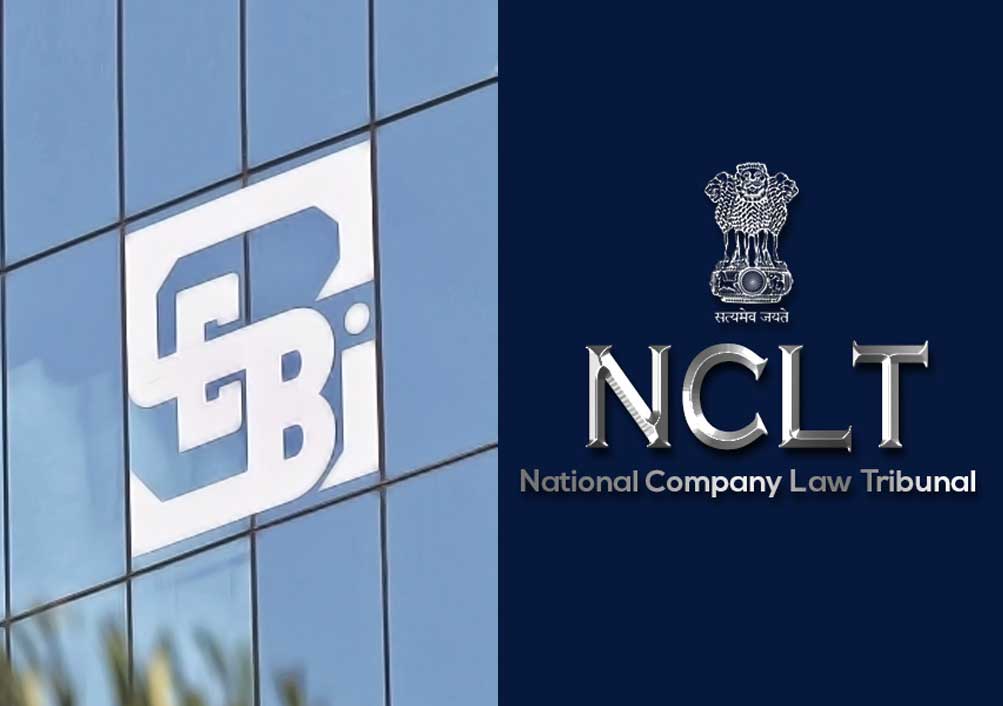In CIVIL APPEAL No. 2030 of 2019-SC- It is only for SEBI to determine violation of provisions of SEBI Act & Regulations, rules Apex Court while rejecting contention that NCLT u/s 59 of Companies Act, 2013 exercises parallel jurisdiction with SEBI :SC
Justices A.S.Bopanna & Pamidighantam Sri Narasimha [04-01-2023]

Read Order: IFB AGRO INDUSTRIES LIMITED v SICGIL INDIA LIMITED AND OTHERS
LE Correspondent
New Delhi, December 5, 2023: Noting the fact that the SEBI (Substantial Acquisition of Shares and Takeover) Regulations, 1997, is a comprehensive scheme providing for inquiry, investigation, procedural safeguards, the Supreme Court has made it clear that the whole procedure cannot be short-circuited by making an application under Section 111A of the Companies Act, 1956 on the ground that there exists parallel jurisdiction with the SEBI and CLB/Tribunal.
“Having considered the comprehensive role of the SEBI in regulating the securities market with respect to insider trading, we are of the opinion that the important role of the Regulator cannot be circumvented by simply asking for rectification under Section 111A of the 1956 Act. Such an approach is impermissible. The scrutiny and examination of a transaction allegedly in violation of the SEBI (PIT) Regulations will have to be processed through the regulations and remedies provided therein”, the Division bench of Justice A.S. Bopanna and Justice Pamidhighantam Sri Narsimha held.
The short question for consideration pertained to the scope of the rectificatory jurisdiction of the National Company Law Tribunal under Section 59 of the Companies Act, 2013.
Relevant facts for adjudication of the present appeal were that the Appellant was a listed company engaged in the manufacture and sale of rectified spirit, country liquor, marine products, carbon dioxide gas etc. The first respondent was also a listed company which was engaged in the business of producing carbon dioxide gas and dry ice. The second respondent was the managing director of the first respondent, the wife of the second respondent was the the third respondent and other respondent persons were close relatives.
On January 19, 2004, the first respondent acquired 600 equity shares of the Appellant and this resulted in the aggregate shareholding of the Respondents crossing 5% of the total paid-up share capital of the Appellant, thereby triggering Regulation 7(1)9 of the SEBI (SAST) Regulations. Four months later, the first respondent acquired additional shares of the Appellant, as a result whereof; its individual shareholding exceeded 5% of the total paid-up share capital of the Appellant. This individual crossing of 5% by the first respondent triggered the SEBI (PIT) Regulations.
The Appellant claimed that it got to know about the said acquisition on June 4, 2004 when it carried out an internal investigation into the total number of shares held by the Respondents in the Appellant Company.
The Appellant filed a petition before the Company Law Board under Section 111A of the 1956 Act praying for rectification of its register by deleting the name of the Respondents as the owner of shares which are over and above the 5% threshold. During the pendency of the petition under Section 111A, the 2013 Act came into force, and the matter stood transferred to the Tribunal. Allowing the company petition, the Tribunal held that the acquisition of shares in excess of 5% was in violation of the SEBI (PIT) Regulations and the SEBI (SAST) Regulations.
The Respondents herein carried the matter to the Appellate Tribunal in appeal which was allowed.Hence, this appeal was filed.
The Bench opined that it is a summary power to carry out corrections or rectifications in the register of members. The rectification must relate to and be confined to the facts that are evident and need no serious enquiry ,the Court further stated.
Referring to the judgment in Ammonia Supplies Corporation (P) Ltd. v. Modern Plastic Containers Pvt. Ltd. & Ors. which puts forth the principles relating to the jurisdiction of a Tribunal with respect to the rectification of the register, the Bench opined that sub-section (3) of Section 59 recognizes the overarching right to hold and transfer securities with the concomitant entitlement of voting.
The Court was of the opinion that the company petition under Section 111A of the 1956 Act for a declaration that the acquisition of shares by the Respondents as null and void was misconceived. As per the Bench, the Tribunal should have directed the Appellant to seek such a declaration before the appropriate forum. The Appellate Tribunal was therefore justified in allowing the appeal and setting aside the order of the Tribunal.
“On the first issue, following the decision of this Court in Ammonia Supplies Corporation (P) Ltd. v. Modern Plastic Containers Pvt. Ltd. & Ors. (1998) 7 SCC 105, [LQ/SC/1998/909] we have held that the rectificatory jurisdiction under Section 59 of the 2013 Act is summary in nature and not intended to be exercised where there are contested facts and disputed questions. On the second issue, we have held that transactions falling within the jurisdiction of Regulatory bodies created under a statute must necessarily be subjected to their ex- ante scrutiny, enquiry and adjudication. We have, therefore, rejected the contention that the National Company Law Tribunal under Section 59 exercises a parallel jurisdiction with Securities and Exchange Board of India (hereinafter referred to as the SEBI or the Board) for addressing violations of the Regulations framed under the SEBI Act”, the Bench held.
The Court thus observed that the Appellant was not justified in invoking the jurisdiction of the CLB under Section 111A of the Act for violation of SEBI regulations and dismissed the appeal.
Sign up for our weekly newsletter to stay up to date on our product, events featured blog, special offer and all of the exciting things that take place here at Legitquest.




Add a Comment